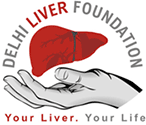Hepatitis C
- Hepatitis C virus is one of the hepatotrophic virus ( exclusively effects the liver) which is leading cause of liver disease in west as well as our country. Worldwide about 150 million people are chronically infected with hepatitis C virus, and more than 350 000 people die every year from hepatitis C-related liver diseases.
- Hepatitis C virus infects the liver cells and multiply in liver and is found in blood and other body secretions also. It spreads from one person to other by following ways :
- Blood and blood product transfusion
- Sharing of needles ( drug abusers )or razors
- Less commonly by mother to new born or by unprotected sex with infected person
- Hepatitis C virus can affect the liver in many ways, that is :
- On first exposure to the virus it causes Acute viral Hepatitis but this is a rarely seen in hepatitis C virus infection.
- Most of the patients who are exposed to hepatitis C virus have Chronic hepatitis. In this condition patients are either diagnosed incidentally while on routine investigation or due to investigation for some other symptoms. Some of patients may present with anorexia, low grade fewer, generalized weakness etc. Some are diagnosed on family screening
- Chronic liver disease : many patients with hepatitis C infection are diagnosed in the late stage when the virus has already damaged the liver to the extent that liver is not able to perform its function normally. In this condition patients present with jaundice ( yellowing of eyes), fluid in abdomen that is abdominal distension, swelling of the feet , anorexia and weight loss or blood in the vomitus.
- Hepatocellular carcinoma (liver cancer): now a days many patient first time with the above described symptoms and when we evaluate them they have already developed cancer in there liver.
- About 75–85 % of newly infected persons develop chronic infection and 60–70% of chronically infected people develop chronic liver disease; 5–20% develop cirrhosis and 1–5% die from cirrhosis or liver cancer.
- Prevention – In case of hepatitis C due to unavailability of the vaccine the prevention rely on the testing of the blood and blood products and use of new needles every time and not to share the used needles.
Treatment –
Treatment of the HCV infection depends on the stage of the liver disease.
- As most of the cases are detected in the chronic hepatitis stage so most of them becomes the candidate for treatment. Treatment time and successes depends on the genotype of the virus. In case of Genotype 1 and 4 the treatment is given for the 48 weeks and the successes is 50-60% whereas in case of Genotype 2 and 3 the treatment is given for the 24 weeks and the sucessees is 70-80%. Till now the treatment classically comprise the Peginterferon and ribavirin. But with the coming of new oral drugs ( interferon free therapy) such as Sofosbuviretc the success rate have increased from 50% to more than 80% even in the Genotype 1 and more than 90% in genotype 3.Though these new oral drugs are still not available in Indian market but soon they will be available in India.
- Chronic liver disease : In such condition one has to treat the symptoms with medication and the virus has to be treated with low dose of interferon if possible or may in coming time with new interferon free oral drugs. Once the patient develop symptoms or have complication one has to consider for liver transplantation or stem cell therapy.
- Liver cancer : there are different modalities to treat the liver cancer depending on many factors. The different modalities are ; liver transplantation , resection of the tumor, radiofrequency ablation therapy (RFA), TACE or oral medications.

